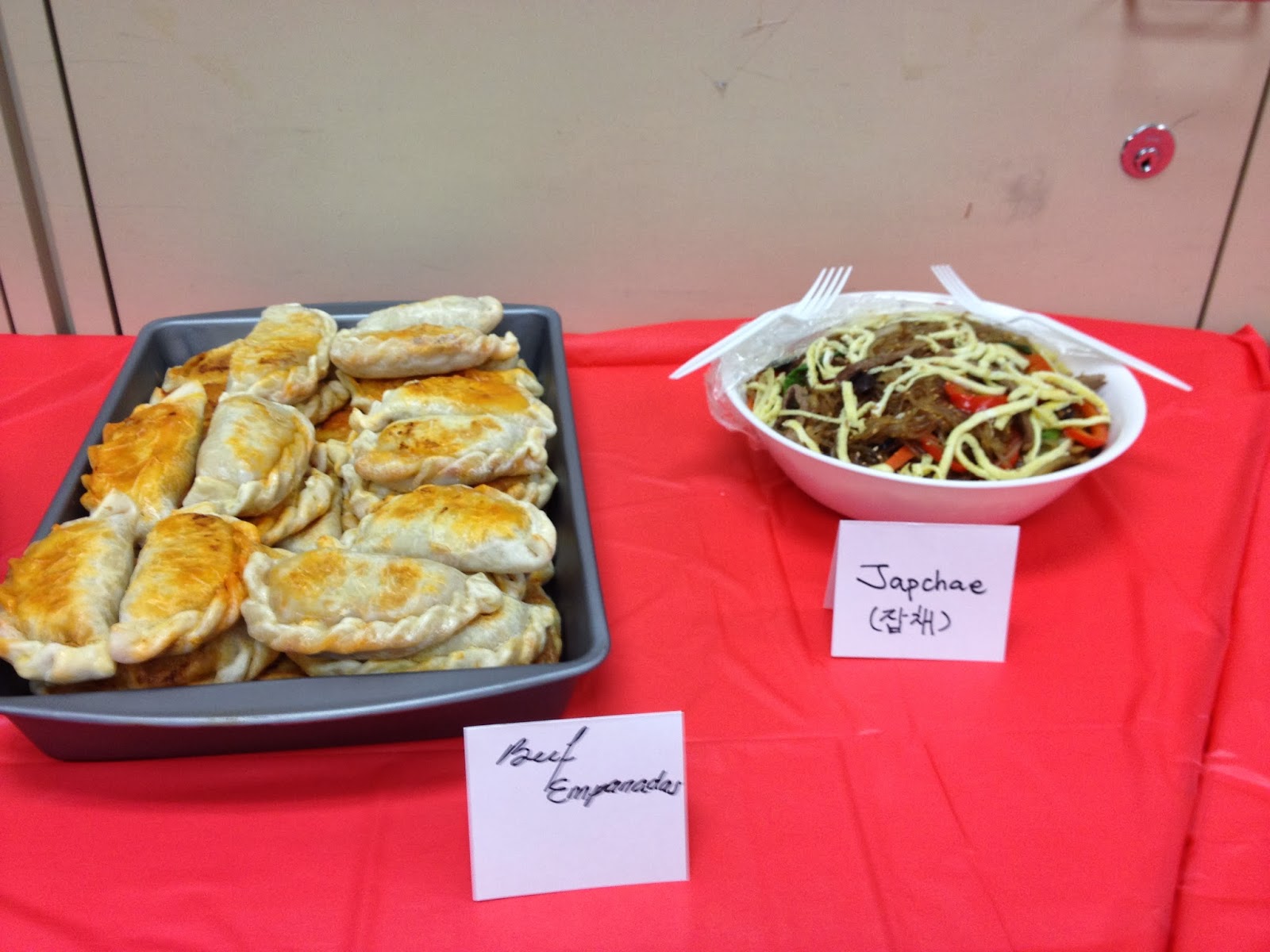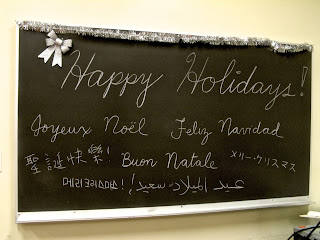On February 18th we had our first brown bag lunch of the semester with Dr. Al-Batal, director of the highly praised Arabic Flagship Program, and co-author of one of the most widely used set of Arabic texts in the classroom. This brown bag functioned a little differently than the ones we had in the fall in that Dr. Al-Batal elaborated deeply on questions we had concerning the creation of his curriculum. He took us through some history, talked about how the research at the time influenced his decision making, how departmental and institutional requirements affected the process of curriculum development, and told us some of his opinions on language education in US universities today. Below are some notes on things that were discussed during the brown bag lunch.
First, he talked about departmental requirements in university foreign language education stating that many foreign language departments are not given any guidelines from the university and are free to conduct business as they see fit. He commented that this can be detrimental in that departments that lack defined goals and effective instructional methods often do their students a disservice. He followed up by saying that US universities generally lack a vision for language and cultural education; they are behind the rest of the world in these areas, students who spend several years studying a language in high school still wind up in 1st semester classes at the university level, and some classrooms still use differentiated instruction (e.g. teaching several levels in the same classroom). Dr. Batal concluded that lower level coordinators need to add love, vision, and philosophy to their programs, there is a need to check student progress as they move through courses, and that programs need to evaluate and maintain standards.
Second, in regards to the creations of his own curriculum, he took us through a short history of Arabic in the United States and how he and his co-authors went about developing their curriculum. Here's some of the notes I managed to write down concerning this process:
- - Arabic
used to be taught via grammar translation, speaking wasn't a priority
- - 1967 - Dr. Aboud developed a series of materials based on audiolingual approach and
continues emphasis on grammatical structures.
- - 1980’s
communicative approach and proficiency movement
o
1982 Middlbury College Arabic school established
o
10 week pledge to only use target language
§
Immersion environment – textbook wasn't
appropriate
o
Current materials did’t cut it
- - Became
director, decided to write a textbook
o
Assembled a team to write the textbook
o
Diverged from grammatical structures to functional structures
o
Importance of culture
o
Inclusion of spoken dialects, which was not generally done in Arabic Education
o
Common thread – Textbook "story"
o
Some unorthodox methods– 1st chapter vocabulary: The United Nations
§
It was worked into the story, UN is a more common word in
some places
- - Textbook
emerged from collaboration and vision
- - Hopes that future students can take the book/instruction to a new level
- - Lessons:
o
If you believe in it, go change it
o
Collaboration is extremely important
o
Define your vision, based on your standards and
the needs of the students
- - What
are the factors that shape you as a teacher
Dr. Al-Batal ended the talk by stating that not enough is being done on the national level to promote language education, and that universities need to support a push for advancement in language and cultural education in order to develop students with higher proficiency levels.
Thank you Dr. Al-Batal for sharing your experiences and giving us insight into some of the more practical aspects of language education. Also thank you to all of the FLESA members in attendance during the brown bag lunch.
 |
| Photo Credit: Steven Kroman |
 |
| Photo Credit: Yi-Wen Su |




















